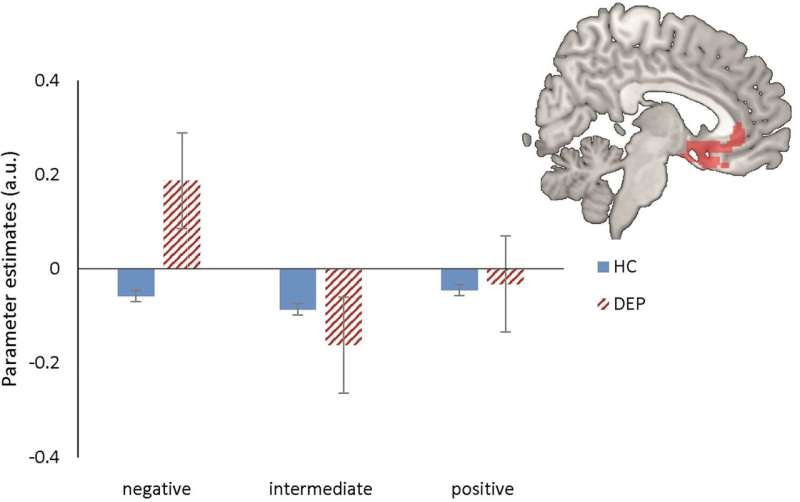This article has been reviewed according to Science X's editorial process and policies. Editors have highlighted the following attributes while ensuring the content's credibility:
fact-checked
peer-reviewed publication
trusted source
proofread
Depressed teens appear to be extra sensitive to parental criticism

"You're so messy! Tidy up your room." "Why are you so lazy today? Go and do your homework." Criticism is never nice to hear. But for some teens it hits extra hard, research by Ph.D. candidate Lisanne van Houtum has shown. Teens with depression appear to be more sensitive to criticism from their parents than their healthy peers are.
"Healthy young people mainly react to parental criticism that they think is unjustified, such as 'You're selfish,' when they feel they are always ready to help others. They find it easier not to let justified criticism, so criticism that they agree with, get to them. This is different for teens with depression: they take all criticism to heart, even if they think what their parents have said is justified," says Van Houtum.
MRI scan of a brain
Van Houtum and other researchers from Leiden University conducted research into the relationship between parents and their children (12–18 years old). MRI scans were used to look at the brain activity in the youths while they received so-say criticism and compliments from their parents. They then had to answer questions about their mood and feelings.
The parental criticism was found to activate brain regions in healthy young people that are involved in processing emotions and pain, in other words: criticism hurts. The findings were largely the same for young people who were suffering from feelings of depression. "But we did see more activity in, among others, the hippocampus, the region of the brain that is important for our memory. This could mean that young people with depression were better at storing parental criticism. Although we can't yet say this with certainty."
A paper about the study, "Sticky criticism? Affective and neural responses to parental criticism and praise in adolescents with depression," was recently published in Psychological Medicine.
More fine-tuning in processing emotions
What is clear is that the teens with depression listed more negative than positive comments after the MRI scan, while the group without depression showed no difference in this. "It seems as though healthy teens have much more fine-tuning when processing emotions," says Van Houtum.
"They are better at filtering between criticism that they consider justified or unjustified. With teens with depression all criticism makes them feel worse. At the same time we can see that the mood of both depressed and healthy teens is given an extra boost when they are given a compliment that matches their self-image."
Parents who want to help their children would do well to keep talking to them, says Van Houtum. There is always a risk of miscommunication. The parents relatively often described their depressed children as lazy. "If you see your child spending all day on the sofa or in bed, you may think as parents that your child doesn't want to do anything, but it's the feelings of sadness and apathy that mean they just can't."
"Talk to your child: 'What do you think you're good at? What suits you? What characteristics are you proud of?' It's good to find common ground so that you as a parent can actively support your child's positive self-image. This doesn't mean that you shouldn't criticize them at all anymore. Criticism can be very valuable and informative. But you should be aware that your words may hit harder than you may have intended."
More information: Lisanne A.E.M. van Houtum et al, Sticky criticism? Affective and neural responses to parental criticism and praise in adolescents with depression, Psychological Medicine (2023). DOI: 10.1017/S0033291723002131




















